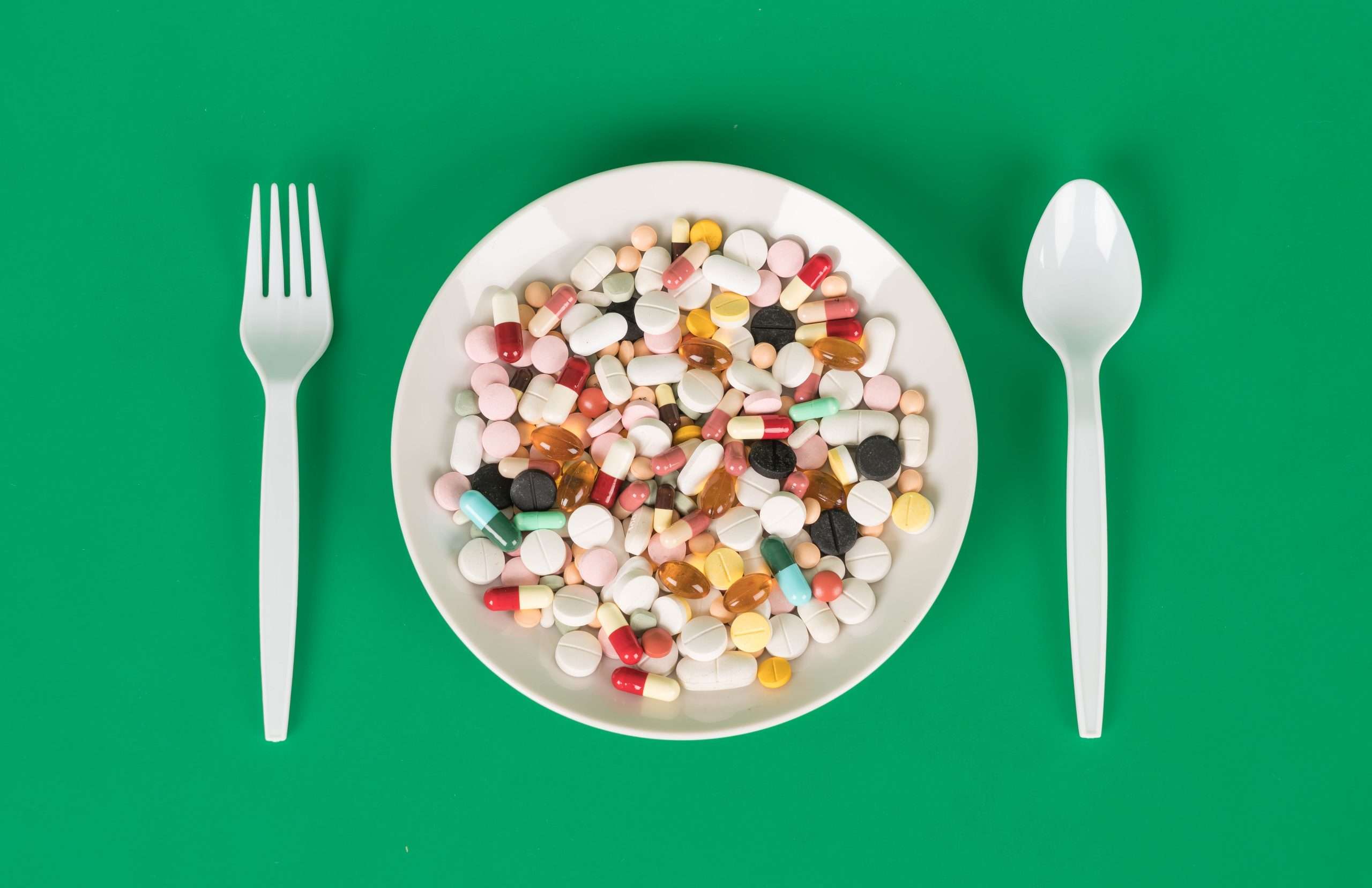
Medically Reviewed by
Dr. Minako Abe, M.D. Board-certified emergency medicine physician researching the relationship between lifestyle and disease onset in relation to the immune system and cancer, Japan.
Thyroid medication is a critical treatment for people with thyroid disorders, such as hypothyroidism and hyperthyroidism. These medications work by supplementing or replacing the hormones produced by the thyroid. When taken correctly, they can help regulate the body’s metabolism and alleviate the symptoms of thyroid disorders. Despite its importance, many people may not know how to take their thyroid medication, resulting in poor treatment outcomes.
Although levothyroxine comes to mind when most people think of thyroid medications, as it is the standard drug used in treating hypothyroidism, which is the most common thyroid disorder, we will address medications for various thyroid conditions.
This article discusses the importance of taking thyroid medication properly and practical tips, including what to do when you receive a prescription from your doctor. The two main types of thyroid medication addressed in this article are:
Medication for hypothyroidism
The standard thyroid replacement medicines used to treat hypothyroidism is levothyroxine, the synthetic form of the thyroid hormone T4. Another possible treatment option is the T4+T3 (levothyroxine and liothyronine) combination therapy. However, this combination therapy remains a controversial topic among experts, as there are not yet clinical trials that establish a significant advantage of the combination over levothyroxine monotherapy. Many medical experts still advise levothyroxine treatment over the T4+T3 combination therapy. Researchers believe more and better-designed trials are required to confirm the effectiveness of the combination.
The 2014 American Thyroid Association Guidelines for the Treatment of Hypothyroidism recommend that levothyroxine be consistently taken at least 30-60 minutes before breakfast, or at bedtime, 3 or more hours after the evening meal. The drug should be taken around the same time every day. The guidelines also recommend adjusting the dose based on the patient’s weight, age, and degree of hypothyroidism. In some cases, starting at a low dose of levothyroxine may be ideal, and gradually increasing the dose over several weeks, with regular monitoring of thyroid function tests and clinical symptoms.
A randomized control trial published in the Archives of Internal Medicine suggested that while bedtime intake of levothyroxine improves thyroid hormone levels in hypothyroid patients, it also found no significant difference between morning and bedtime intakes in terms of overall quality of life, although it suggested clinicians to prescribe the medication at bedtime. A more recent study confirms no difference between the morning and bedtime levothyroxine regimen regarding the overall quality of life. This study also found that thyroid hormone levels and symptoms were not significantly better in one medication routine than the other and suggests that the choice of timing for the administration of the drug should be based on the preference of the patients.
Taking levothyroxine and calcium carbonate supplements at least 4 hours apart is important to ensure that your body absorbs the levothyroxine properly. Ideally, dairy products such as milk and yogurt should also not be taken until at least 4 hours after levothyroxine intake, as these contain high levels of calcium. Hypothyroid patients taking levothyroxine also have to be cautious when taking proton pump inhibitors (PPIs). According to a study published in Endocrine Practice, PPIs, a common medication used to treat acid reflux and other gastrointestinal disorders, may negatively impact the absorption of thyroid medication. This study found that patients taking PPIs had a higher risk of high TSH levels and low thyroid hormone levels. Therefore, clinicians must closely monitor the thyroid hormone and TSH levels of hypothyroid patients taking PPIs.
Also, drinking coffee, especially in the morning, may impact your thyroid hormone levels if you take your medication at the same time as your coffee. Several studies on hypothyroid patients revealed that coffee might lower the efficacy and of levothyroxine treatment. According to a study published in the journal Thyroid, drinking coffee may impact thyroid hormone levels in patients taking levothyroxine, as the caffeine in coffee disrupts the intestinal absorption of the drug and, as a result, reduces its efficacy. However, new research, according to the Endocrine Society, suggests that drinking coffee does not negatively impact the absorption of a liquid formulation of levothyroxine, thereby opening up the possibility of levothyroxine intake by coffee lovers who have previously been advised to only take coffee 30-60 minutes after levothyroxine intake to avoid adverse drug interactions or reduced drug absorption.

Medication for hyperthyroidism
The most common cause of hyperthyroidism is Graves’ disease. The three primary treatment options for treating Graves’ hyperthyroidism are radioactive iodine therapy, surgery, and antithyroid medication. While antithyroid drugs aim to decrease thyroid antibodies and slow disease progression, achieving this outcome is not guaranteed. In the US, only about 25% of people with Graves’ disease treated with antithyroid drugs experience remission, according to the American Thyroid Association. Antithyroid medication has also been associated with a higher risk of relapse compared to radioiodine therapy and surgery (thyroidectomy). On the other hand, radioactive iodine therapy and surgery render the thyroid gland unable to form thyroid hormones and typically result in hypothyroidism. While antithyroid medication is the most common treatment option in Europe and Japan, radioactive iodine treatment is the preferred choice in the US, according to the American Thyroid Association. Essentially, the best treatment for hyperthyroidism depends on the underlying cause, the severity of symptoms, and the individual patient’s health and preferences.
According to the 2016 American Thyroid Association Guidelines for Diagnosis and Management of Hyperthyroidism and Other Causes of Thyrotoxicosis, antithyroid medication dosing should be based on patient weight and severity of hyperthyroidism, and these medications may be taken as a single dose or divided doses throughout the day. Methimazole, a common antithyroid drug used to treat hyperthyroidism, is taken orally in the form of a tablet. This prescription drug can be taken with or without food but should always be taken the same way to ensure consistent effects. The drug doses should be administered at regular intervals and not more than prescribed. Unless your healthcare provider advises so, do not stop taking this medication. A recent study has found that long-term low-dose methimazole is effective in treating Graves’ hyperthyroidism and has a low risk of relapse.
According to a recent meta-analysis, combination therapy of methimazole with levothyroxine for treating hyperthyroidism may provide better clinical outcomes in hyperthyroid children, with fewer side effects than methimazole monotherapy.
What to do after receiving a prescription for thyroid medication?
Once you have received a prescription from your doctor, be sure to ask if any other medicines you are taking will interfere with your thyroid medication. When at the pharmacy, follow this checklist:
- The name of the drug you received matches the name on your prescription.
- The dosage is appropriate and, again, matches the dosage mentioned in your prescription.
- The medicine has not expired or will not expire soon.
Also, be mindful of the following medical conditions that can affect the absorption and efficacy of thyroid medications:
- Lactose intolerance
- Celiac disease
- Atrophic gastritis
- Malabsorption syndromes
- Helicobacter pylori infection
- Autoimmune gastritis
- Pancreatic diseases
- Liver disease
If you have any of these conditions, please consult your physician.
Some thyroid medicines can have side effects, so discussing them with your physician is important. Furthermore, if you have any questions about your dosage or feel that your dosage should be increased, kindly consult your physician to get an expert opinion before making any changes.
Key Takeaways
- Patients can improve their treatment outcomes and live healthier lives by understanding the importance of proper medication management.
- A couple of studies suggest that the timing of levothyroxine administration may have an impact on its effectiveness and that taking it with coffee, calcium carbonate supplements, or medications such as PPIs may reduce absorption.
- Other studies suggest that taking levothyroxine at bedtime may benefit some patients.
- Overall, research seems to indicate that the timing of levothyroxine intake alone does not have significant impacts on its efficacy, as long as the patient takes the drugs appropriately as prescribed by their doctor.
- Antithyroid medication has been associated with a higher risk of relapse compared to radioiodine therapy and thyroidectomy.
- Long-term low-dose methimazole has been shown to be effective in treating Graves’ hyperthyroidism.
- Combination therapy of methimazole with levothyroxine for treating hyperthyroidism in children may provide better clinical outcomes than methimazole monotherapy, according to research.
- Upon receiving a thyroid medication prescription from your doctor, take all necessary precautions to ensure your medication works effectively. Consult your doctor if you have any questions regarding your treatment.
- As with any medical treatment, the best approach, including administration method and dosage of thyroid medication, should be made in conjunction with a healthcare provider, considering individual patient factors.
FAQs
Taking thyroid medication as prescribed is crucial for maintaining optimal thyroid function and managing hypothyroidism symptoms effectively. Consistency in medication intake helps ensure stable hormone levels in the body, which is essential for overall well-being.
It’s essential to be mindful of potential interactions between thyroid medication and other supplements or foods. For example, calcium-rich foods, like yogurt, should be consumed separately from thyroid medication to avoid interference with absorption. Consulting with a healthcare provider can help determine the best timing and any necessary precautions when combining medication with other substances.
The timeline for experiencing improvements in hypothyroidism symptoms can vary among individuals. While some may notice changes relatively quickly after starting medication, others may require several weeks or even months to experience significant improvements. Patience and consistent adherence to medication are key factors in achieving desired outcomes.
In addition to taking thyroid medication, adopting a healthy lifestyle and dietary habits can support overall thyroid health. Incorporating nutrient-rich foods like eggs, nuts, and salmon, as mentioned in the article, can provide essential nutrients that support thyroid function. However, it’s essential to consult with a healthcare provider before making significant dietary changes or starting new supplements to ensure they align with your treatment plan.




